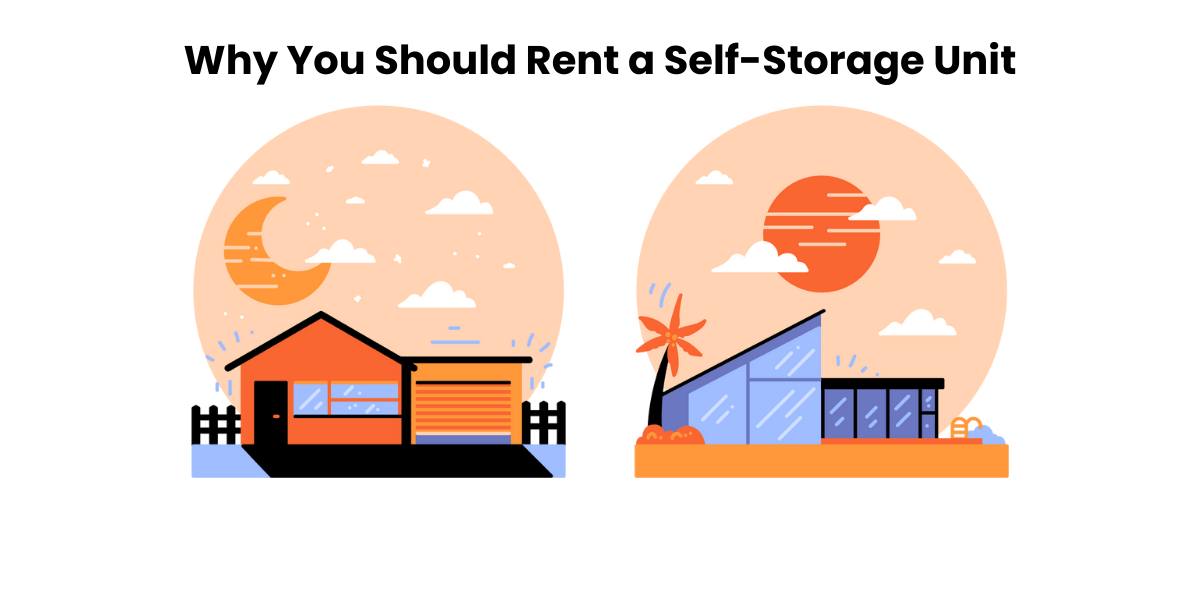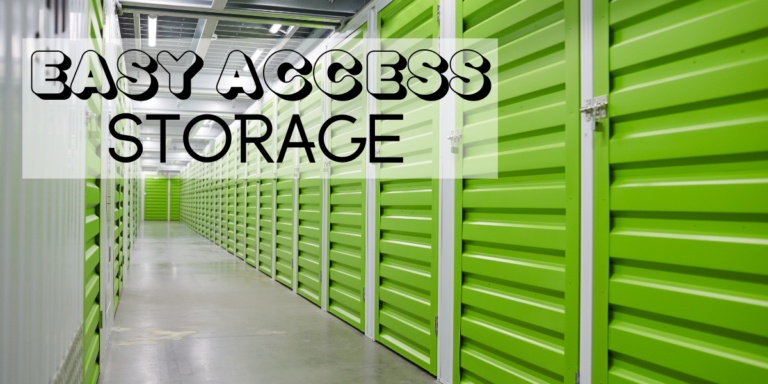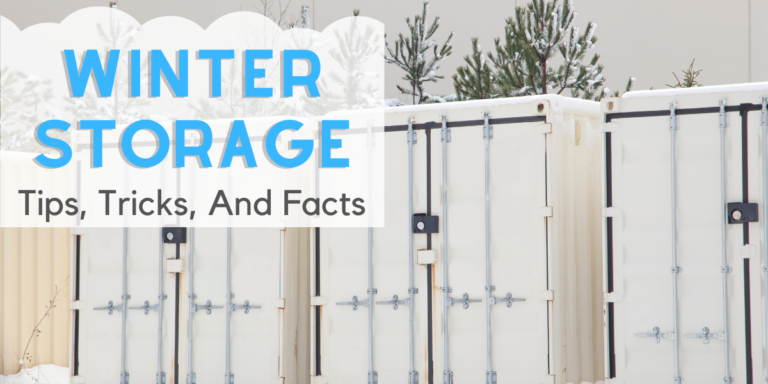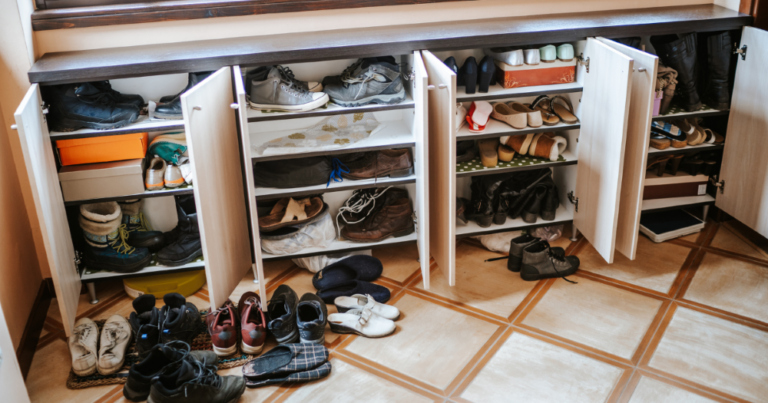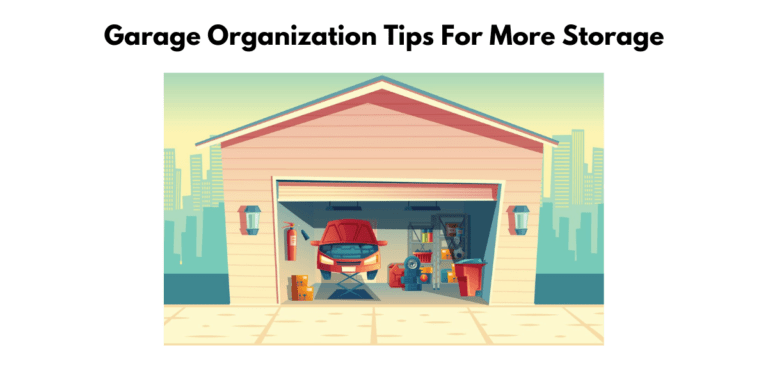10 Reasons Why a Self-Storage Unit is Perfect for Business Storage
Self-storage as a business storage
Self-storage is an ideal solution for businesses of all sizes looking to store inventory and other business-related items.
This cost-effective solution allows retail businesses to maintain a clean, uncluttered shopping area while still having access to their inventory.
From clothing boutiques to office equipment companies, businesses can benefit from the convenience and affordability of self-storage.
Climate-controlled storage units are the best option for temperature-sensitive inventory, while drive-up access storage units are better suited for non-temperature-sensitive items.
With the help of self-storage, businesses can save money on office space and free up space in their homes.
In addition to storage units, some facilities offer commercial storage services such as package delivery, office space, warehouse storage, and 24/7 gate access to units.
3 types of inventory storage solutions
For retail businesses, managing inventory can be a tricky task.
Commercial retail space is expensive, and store owners need to create a quality shopping environment that customers will enjoy.
Many retail businesses take advantage of storage solutions to ensure their store remains clean and organized and their inventory is properly stored and managed.
Three types of inventory storage solutions for retail businesses include climate-controlled storage units, drive-up storage units, and self-storage.
Climate-controlled storage units are ideal for temperature-sensitive products, while drive-up storage units offer convenience and easy access.
Self-storage provides retailers with a way to manage their inventory cost-effectively, as well as ensure their merchandise is safe, secure, and accessible.
Traditional warehousing
Traditional warehousing is a system of storing goods and materials for business purposes.
It is typically used for storing large quantities of items, such as inventory and products, for a long period.
Warehouses provide a secure place to store items, with controlled access and climate-controlled conditions to ensure the safety of items.
Warehousing is often used by manufacturers, retailers, and other businesses that need to store large amounts of inventory and products.
Warehousing solutions also allow businesses to store items close to their customers, reducing shipping times and costs.
Warehousing is also a cost-effective solution for businesses that need extra storage space, as they can often rent warehouse space at competitive rates.

3PLs
3PLs, or third-party logistics providers, provide a wide range of warehousing, transportation, and distribution services.
Businesses use 3pls for business storage because they are more cost-effective and efficient than in-house storage solutions.
Additionally, 3PLs provide a full suite of services that can help businesses save time and money, such as inventory management, order fulfillment, and delivery tracking.
With 3pls, businesses no longer have to manage and maintain their storage facilities, allowing them to focus on other operations.
Lastly, 3PLs provide a secure and reliable solution, which is necessary when storing sensitive documents and products.
Self-storage
People use self-storage for business inventory because it is a cost-effective option for managing retail inventory.
Self-storage offers the security of climate-controlled units and 24/7 monitoring, essential for protecting merchandise.
Additionally, businesses such as clothing boutiques, electronics specialty stores, and office equipment companies find that self-storage can save them money on office space. They don’t have to rent more on-site commercial space for storage.
Realtors and other sales-oriented professionals can also benefit from commercial storage units, as these facilities can provide additional space for storing promotional materials.
A self-storage is also a great option for small offices, as it offers a place to keep office supplies that won’t take up space.
10 reasons why a commercial storage unit is perfect for businesses as an inventory storage
Self-storage units are ideal for businesses looking to improve their operations and storage capabilities.
These units offer a cheap, convenient way to store and manage documents, vehicles, inventory, equipment, and more – without expanding or relocating their office.
Self-storage provides much-needed space for businesses and offers unique benefits such as package delivery, office space, warehouse storage, 24/7 gate access to units, and cost savings compared to commercial real estate.
For retail businesses, self-storage is an invaluable asset for managing an ever-changing inventory.
Here are 10 reasons why a self-storage unit is perfect for business storage.
1. Flexible terms
Storage units can be booked in various sizes with varying prices, making it easy to find the perfect fit for your needs.
This flexibility also allows you to change the size of your unit as your business grows or changes.
Also, self-storage facilities often have longer opening hours than traditional post offices, so you can access your belongings when convenient.

2. A place to store seasonal items
Self-storage can be a great place to store seasonal items.
For example, you may want to store your holiday decorations in a self-storage unit during the summer so they are out of the way.
Another benefit of self-storage is that it frees up space in your home or business premises for other purposes.
3. Work/life separation
Using a self-storage unit, you can store all of your business supplies and inventory in one place without worrying about cluttering up your home or office.
This can be especially helpful if you don’t have much space at home or need to keep your workspace organized and clutter-free.
Additionally, self-storage can be a great way to protect your belongings from damage or theft.
If you’re ever out of town or unable to access your home or office, you can rest assured knowing that your inventory is safe and sound in your self-storage unit.
4. Free up space
Selling online can be a great way to make extra money but it also comes with challenges.
One of the biggest challenges is finding enough space to store your inventory.
This is where self-storage units can come in handy.
Self-storage units provide flexible warehousing to small businesses.
This means that you can upgrade or downgrade according to your needs.
With flexible warehousing, you can keep your inventory neatly organized and easy to access.
This is important for sellers who can find and ship items to their customers quickly.
5. Save money
One of the benefits of self-storage is that it allows businesses to save money.
Storage is provided for a flat rate and does not incur additional hidden fees.
This can be helpful for businesses that are looking for ways to cut costs.
In addition, the savings from renting a storage unit allows businesses to focus on product quality instead of managing storage costs.

6. Improved security
Most businesses have lost products to theft before.
A study by the National Retail Federation found that shoplifting and employee theft cost US retailers $44 billion in 2017.
Inventory safety can be ensured with self-storage units that provide 24/7 video surveillance and individual alarms for each storage unit.
In-home burglaries occur on average every 30 seconds, so the benefits of this type of storage unit are clear in an environment where you want your inventory safe.
Storage facilities take safety measures seriously, with patented tri-cam locking systems and high-definition surveillance.
Look no further than self-storage units if you’re looking for a safe and secure place to store your inventory.
7. Convenience and accessibility
Self-storage provides businesses with convenience and accessibility as inventory storage by allowing items to be delivered directly to the facility, providing business owners with the necessary materials they need when they need them.
Self-storage is cheaper than a warehouse and more secure than on-site storage, with climate-controlled units and 24/7 security providing business owners with peace of mind that their merchandise is safe.
A self-storage is also a great option for retail businesses that need to store inventory and materials and for ecommerce retailers who can use self-storage as a workspace, saving money on an office and freeing up valuable space in their home.
Other industries that benefit from using self-storage for inventory include contractors, brick-and-mortar retail businesses, and ecommerce retail businesses.
8. Ability to store home and office furniture, appliances, and other large items
The ability of self-storage to store home and office furniture, appliances, and other large items greatly benefits businesses specializing in home maintenance and repairs.
These businesses, such as plumbers, electricians, general contractors, and HVAC, often require a lot of tools, spare parts, and equipment.
Self-storage provides an affordable and convenient solution to store these items.
Home service businesses, like lawn care and air conditioning companies, also benefit from self-storage, as it offers an inexpensive way to store their vehicles and equipment.
Real estate professionals, such as realtors and home staging professionals, also use self-storage for promotional materials, furniture, and other decorations.
In summary, self-storage offers an effective way to store and access larger items, making it an ideal option for various businesses.
9. Increased ability to manage inventory storage needs
Self-storage is ideal for retail businesses looking to store and manage inventory.
Using self-storage, businesses can save money on expensive commercial retail space and ensure their merchandise is safe and secure.
Self-storage provides businesses with climate-controlled units and 24/7 security, making it an ideal option for storing temperature-sensitive items.
Self-storage can also serve as a workspace for ecommerce retailers, allowing them to save money on an office and free up valuable space in their homes.

10. Increased organization and efficiency
Self-storage units can help businesses increase their organization and efficiency in multiple ways.
For example, a self-storage unit can free up limited office space and make storing documents, vehicles, inventory, and equipment easier.
At some facilities, commercial storage services, such as package delivery, office space, warehouse storage, and 24/7 gate access, make accessing and managing stored documents, merchandise, and equipment easier.
Additionally, businesses that specialize in home maintenance and repairs can store their tools, spare parts, and equipment in a self-storage unit, eliminating the need for an expensive warehouse or office.
Furthermore, self-storage units offer a secure, climate-controlled space to manage inventory.
They can even serve as a workspace for ecommerce retailers, saving them money on an office and freeing up valuable space in their homes.
4 tips for inventory storage
Inventory storage is necessary for any business that sells physical goods.
The complexity and need for inventory storage will vary from company to company based on sales volume, location, product attributes, etc.
It can be difficult to know which option works best, given the variety of options in the industry.
However, here are four tips that might help make the decision a little easier:
Set reorder points for all SKUs
You should always be prepared for the unexpected when it comes to inventory.
This means planning when stock runs low and needs to be reordered.
One way to do this is to set reorder points for each SKU.
This will help you anticipate shortages before they happen and ensure you never run out of a product.
You can also store your inventory in a central location for easy retrieval and set reorder points before any shortage occurs.
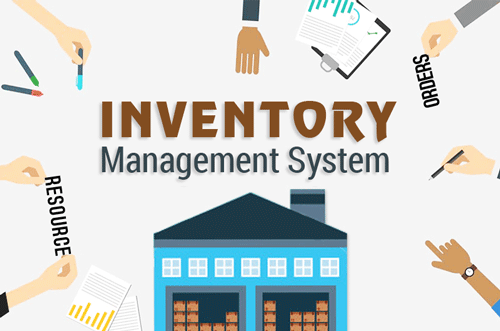
Implement inventory management and tracking
Implementing inventory management and tracking is important to ensure an accurate inventory list is present, easily accessible, and up-to-date.
This is especially true for retail businesses that require a lot of space to store and manage their inventory.
By utilizing business storage units, such as those with climate control or drive-up access, businesses can better organize their inventory and maintain quality shopping environments.
Implementing inventory management and tracking will help businesses easily access their inventory when needed, as well as minimize potential damage while taking advantage of the most space.
- Develop an inventory list of all items to be stored in the unit. Be sure to include specifics such as size, type, and quantity.
- Utilize proper packing techniques when storing furniture and supplies for an office move.
- Consider renting a storage unit for retail businesses that need to manage inventory in a clean, uncluttered shopping area.
- Choose a storage unit that meets the business’s needs, whether drive-up access or climate-controlled.
- Contact a storage expert to help organize and manage the inventory at various locations.
- Designate a clear labeling system for the inventory to ensure it can be easily identified and accessed.
- Establish a system for tracking inventory levels and movement in and out of the unit.
- Review inventory regularly to ensure accuracy and ensure the unit is used efficiently.
Know when to upgrade
When managing a retail business, inventory can be a constant struggle.
Sometimes, it’s necessary to upgrade your inventory storage to save time, effort, and money.
Here are a few signs that you may be ready to upgrade your inventory storage:
- Your shop is becoming increasingly cramped due to seasonal inventory changes.
- Your current storage space is not suitable for temperature-sensitive items.
- You are struggling to create a quality customer shopping environment due to cluttered inventory.
- Delivering items to the facility is becoming more time-consuming and difficult.
- You are struggling to manage and cost-effectively store inventory.
If you are experiencing any of these signs, then it may be time to consider upgrading your inventory storage.
Commercial self-storage is a great way to maintain a clean and organized shop and effectively store and manage your inventory.
Choose a storage unit with climate control and drive-up access to ensure the best possible solution for your retail business.
Perform inventory checks often
It is important to perform inventory checks often to ensure that all of the office or retail store’s items are present and accounted for.
This helps to ensure that the business can keep up with customer demand, as well as to identify any potential losses or theft.
Additionally, proper inventory management ensures that businesses can meet the needs of their customers quickly and keep their shops or store organized and free of clutter.
Regularly conducting inventory checks also help to maintain the quality of products being sold, as it allows business owners to check for any damaged products or items that need to be replaced.
Lastly, conducting inventory checks helps protect the stored items from damage, as it allows business owners to ensure that the items are packed and stored appropriately.
- Make an accurate inventory list and store it in an easily accessible place.
- Pack and store furniture and supplies with extra care to ensure they make it to their destination undamaged.
- Store important documents, inventory, and other essential business items in a temperature-controlled environment.
- Set up a system for order fulfillment and corral all business supplies for easy and fast access.
- Perform regular inventory checks to ensure items are not misplaced or damaged.

